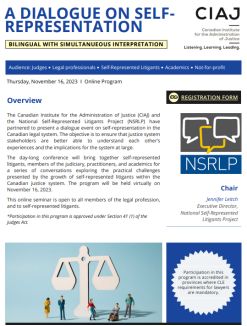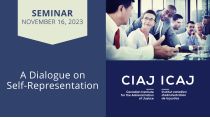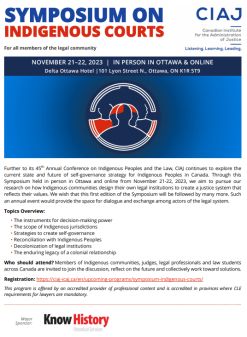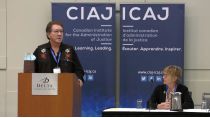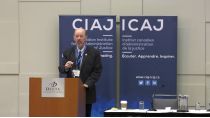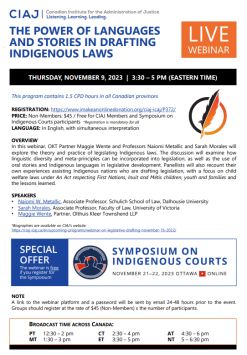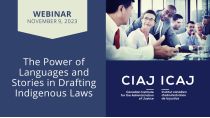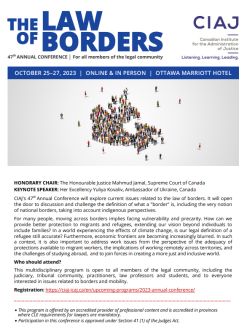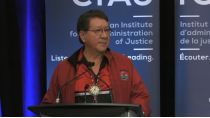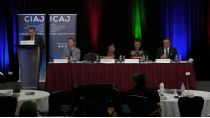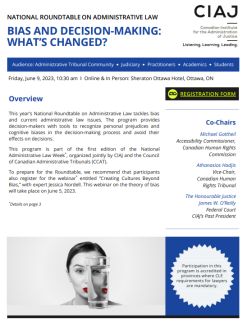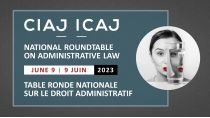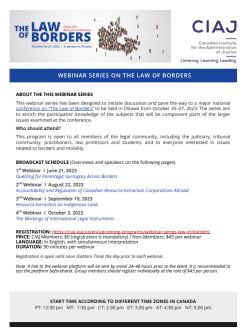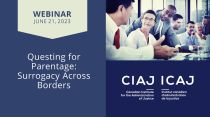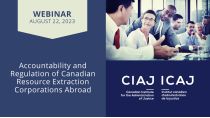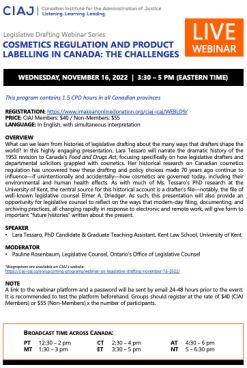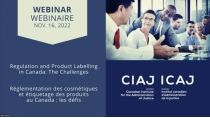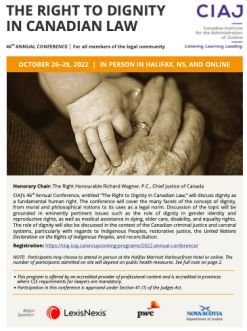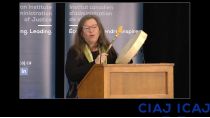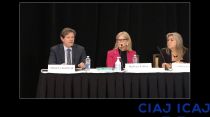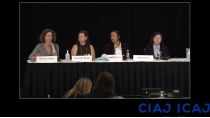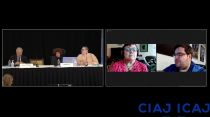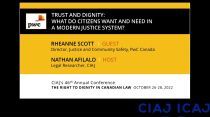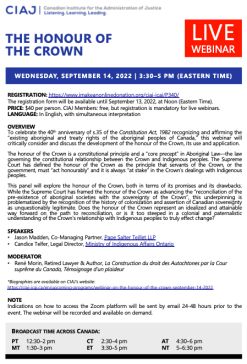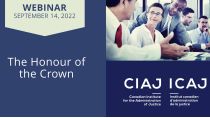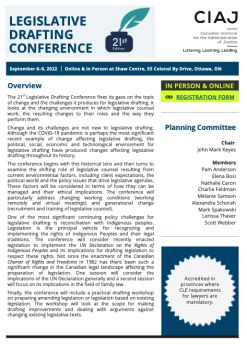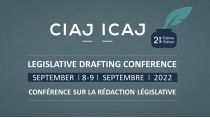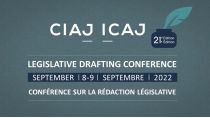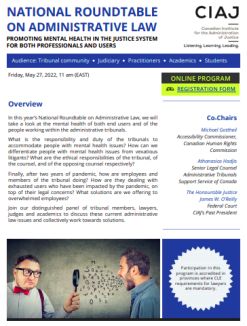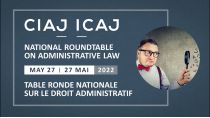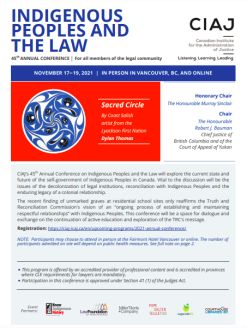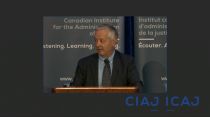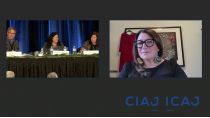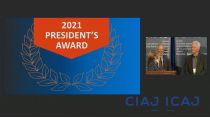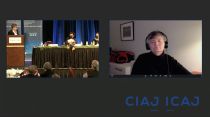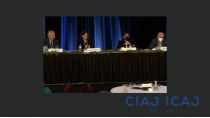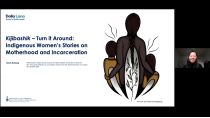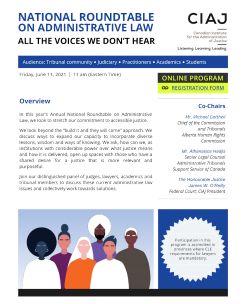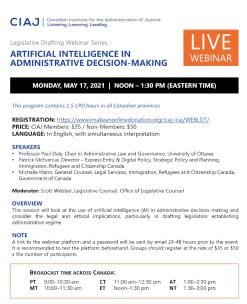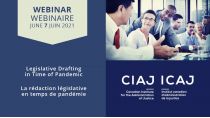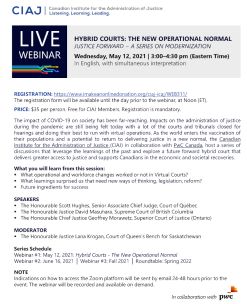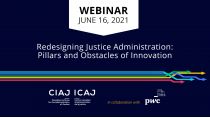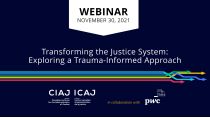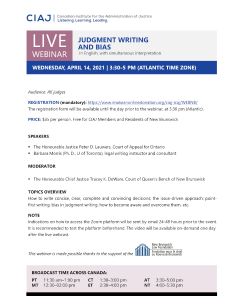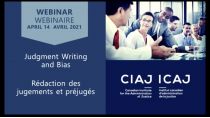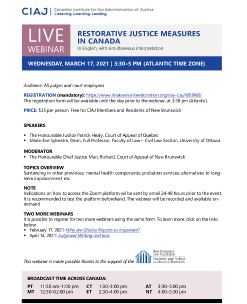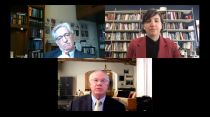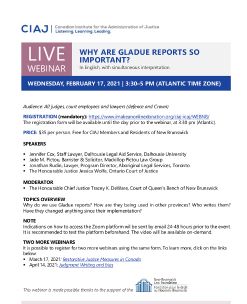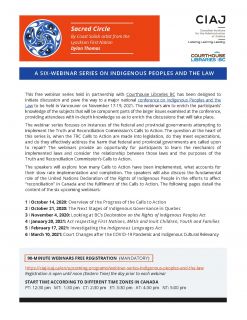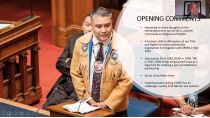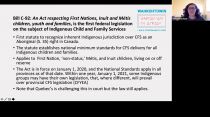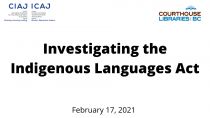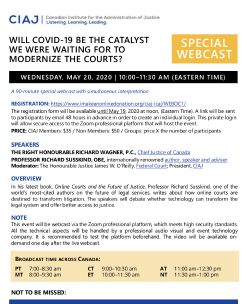Date
Wednesday, September 14, 2022
90-minute webinar
Participation in this program is accredited in provinces where CLE requirements for lawyers are mandatory.
Accreditation: Accredited in provinces where CLE requirements for lawyers are mandatory (1 hour 30 minutes).
Theme
To celebrate the 40th anniversary of s.35 of the Constitution Act, 1982 recognizing and affirming the “existing aboriginal and treaty rights of the aboriginal peoples of Canada,” this webinar will critically consider and discuss the development of the honour of the Crown, its use and application.
The honour of the Crown is a constitutional principle and a “core precept” in Aboriginal Law—the law governing the constitutional relationship between the Crown and Indigenous peoples. The Supreme Court has defined the honour of the Crown as the principle that servants of the Crown, or the government, must “act honourably” and it is always “at stake” in the Crown’s dealings with Indigenous peoples. The duties that flow from the honour of the Crown will vary, but include the making and applying of treaties, protecting Aboriginal or Treaty rights recognized and affirmed under s. 35 of the Constitution Act, 1982, and consulting and accommodating Indigenous communities when the Crown would undertake or consider an action that would potentially have adverse effects upon s.35 Aboriginal or Treaty rights. The honour of the Crown requires the Crown to interpret its constitutional obligations broadly and purposefully while diligently fulfilling them and prohibits even “the appearance of sharp-dealings” in the relationship between the Crown and Indigenous peoples.
This panel will explore the honour of the Crown, both in terms of its promises and its drawbacks. While the Supreme Court has framed the honour of the Crown as advancing the “reconciliation of the pre-existence of aboriginal societies with the sovereignty of the Crown”, this underpinning is problematized by the recognition of the history of colonization and assertion of Canadian sovereignty as unquestionably legitimate. Does the honour of the Crown represent an idealized and attainable way forward on the path to reconciliation, or is it too steeped in a colonial and paternalistic understanding of the Crown’s relationship with Indigenous peoples to truly effect change?
Speakers
Jason Madden is co-managing partner of Pape Salter Teillet LLP. He is a graduate of Osgoode Hall Law School at York University and is called to the bar in Ontario, Yukon, the Northwest Territories, Alberta, and Manitoba. He specializes in Indigenous rights law, with an emphasis on litigation, consultation and accommodation related matters, and the negotiation and implementation of modern day treaties. He is also recognized as being at the forefront of the development of Métis rights law in Canada. Jason is Métis and a descendant of the “Halfbreeds of Rainy River and Rainy Lake” who collectively adhered to Treaty No. 3 in 1875. His litigation practice focuses on a range of areas impacting Indigenous communities. He regularly advises and acts for First Nation and Métis communities. He is ranked by both Lexpert Magazine (“consistently recommended”) and Chambers & Partners as a leading practitioner in Aboriginal law.
Candice Telfer is the Legal Director of the Ministry of Indigenous Affairs Ontario. After articling with the Constitutional Law Branch of the Ministry of the Attorney General, she has provided legal counsel across several provincial ministries and organizations including the Ministries of Health and Natural Resources and the Crown Law Office-Civil. She is an instructor of Constitutional Law for the University of Toronto’s Global Professional Masters of Law program, and regularly participates in Continuing Legal Education programs both within and outside of Government. Candice received her J.D. at the University of Toronto, Faculty of Law. Prior to law school she worked as a theatre stage manager and then as an event planner for federal government-sponsored celebrations such as Canada Day in the Capital and Winterlude. She holds a B.A. in theatre and a B.Soc. in Political Science, as well as certification in technical production from the National Theatre School of Canada.
Moderator
After studying law and political science, René Morin began his career with the Department of Intergovernmental Affairs from 1973 to 1981. From 1981 to 2007, he was a lawyer specialized in Indigenous human rights at the ministère de la Justice du Québec, which led him to appear as counsel before the Supreme Court of Canada on numerous occasions. He completed his career as counsel with the McCarthy Tétrault law firm, from 2008 to 2016. He was also a lecturer at the Université Laval, acted as a speaker in Quebec, in Canada and abroad, and is the author of several papers on Indigenous human rights.
Fees
CIAJ Members: Free
Non-members: $40
2022 I Webinar on The Honour of the Crown

